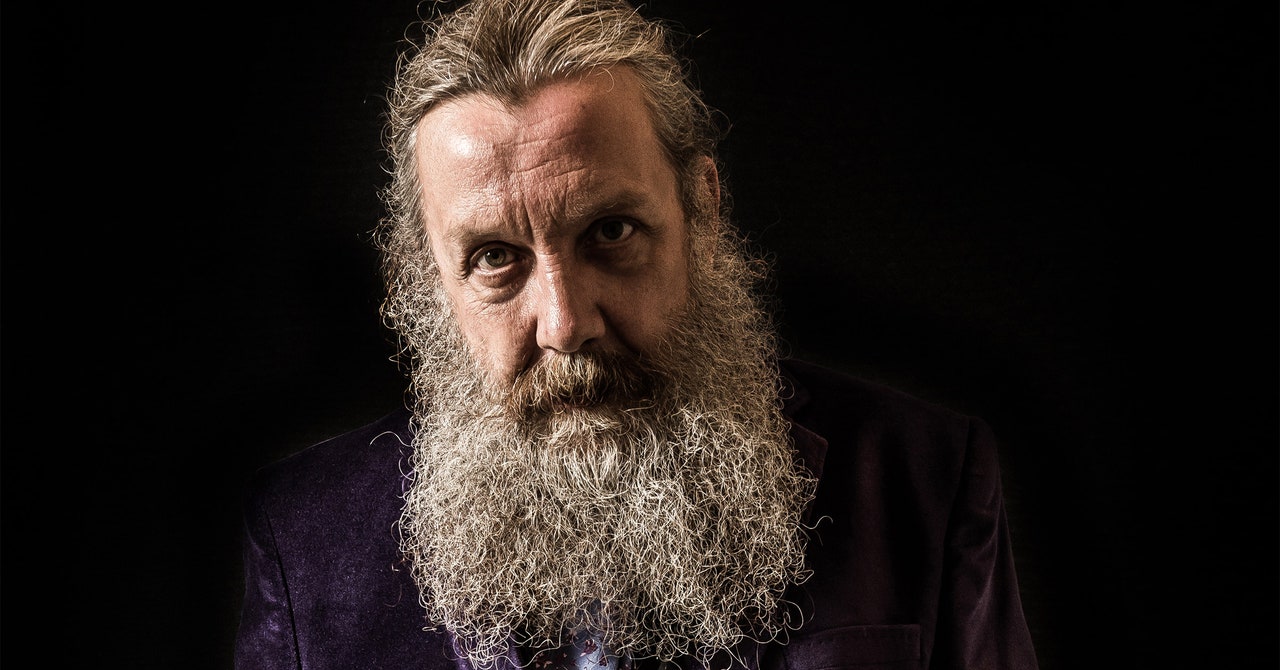[ad_1]
The tragedy of Alan Moore, if there is one, is that his 1980s comics work—Watchmen, V for Vendetta—has been perpetually misunderstood by an audience too eager to learn the wrong lessons. The British writer has spent his career all but begging readers to be skeptical of superheroes, to question their motives and do-goodery. Still, they seem intent on missing his point.
Moore himself seems painfully aware of this misfortune. In a handful of rare interviews he’s given over the past couple weeks to promote his new story collection, Illuminations, he’s found himself once again answering questions about the genre he left decades ago, and once again explaining his work. “When I did things like [Miracleman] and Watchmen … They were trying to show that any attempt to realize these figures in any kind of realistic context will always be grotesque and nightmarish,” he recently told GQ. Instead, he added, fans simply thought, “Uh, yeah, dark, depressing superheroes are, like, cool.”
In this, Moore stands correct. And in those readers’ defense, dark superheroes are cool. But Moore’s point goes beyond that; he wants people to realize that wishing for saviors is a fool’s errand and anyone who attempts heroism on that level is bound to be torn asunder. Moore just wanted to illustrate how ridiculous it would look if someone actually tried.
Perhaps that’s where he went wrong, trying to criticize superheroes in the very medium that practically invented them. Maybe fans’ refusal to hear what Moore tried to say reflects their appetite for the status quo in storytelling, with fights and melodrama often replacing true emotional arcs or personal growth of any kind. Steve Rogers and Tony Stark would rather punch each other than go to therapy; the Joker dances on some stairs and becomes a poster child for disaffected men, rather than a disquisition on how they channel their anger.
Moore has spoken more than once about the infantilizing effect he believes comics, superhero comics, and the movies based on them have on their audience. He finds it startling, he recently told The Guardian, that thousands of adults are “lining up to see characters and situations that had been created to entertain the 12-year-old boys—and it was always boys—of 50 years ago.” It implied, he continued, that audiences were clamoring for “simpler times, simpler realities,” and that kind of thinking “can very often be a precursor to fascism.”
“Infantilizing” may be a bridge too far; same with fascism. Superhero fare is often just fans’ favorite form of escapism, something they can both enjoy and watch critically. Moore’s view also seems focused on the Batman cinematic universes rather than, say, Black Panther or Deadpool or Captain Marvel. But there is something about the culture that is, at the very least, reductive. The medium, in comics and films, often puts conflict in binaries of good and evil, events that have to be “won” or “lost,” or else set to recur in an endless cycle.
Does this mean Moore is right? Perhaps, but ultimately his argument paints comics fans in strokes too broad. Not everyone who likes Rorschach fails to notice he’s a satire; people watch The Boys for more than just the exploding heads. Not every Marvel fan looks up to Captain America with the zeal of a 12-year-old in the 1950s. Some people just like to watch a hero with a hammer fight the dude who once played Bruce Wayne and call Valkyrie “king.”
But what is true is that Moore’s bad-good guys never fully got their point across. They were meant to demonstrate that idolizing heroes is often problematic—then people idolized them for it. The tragedy of Alan Moore isn’t that no one paid attention to his work. It’s that they looked at it and whispered, “No.”
[ad_2]
Image and article originally from www.wired.com. Read the original article here.

